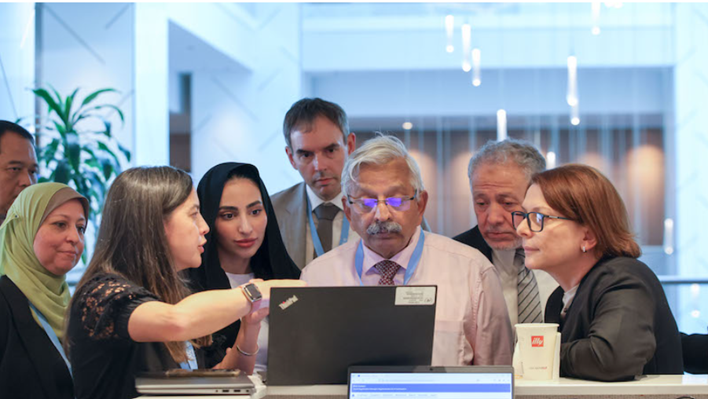
Disagreements on Timeline Jeopardize IPCC's Role in UN Climate Review
Contentious Timelines
Governments have once again reached an impasse on scheduling key climate science reports, halting progress at the recent IPCC meeting in Sofia, Bulgaria. The majority of nations advocate for a faster report delivery by mid-2028 to align with the next global stocktake. However, a faction of high-emitting developing countries, including China, India, Saudi Arabia, Russia, and South Africa, backed by Kenya, argue that a rushed timeline could hinder the inclusion of Global South scientists.
Polarized Debates
The Sofia meeting ended without consensus for the second time this year, mirroring the stalemate of January's discussions. The IPCC will revisit this contentious issue in February 2025, with an interim expert meeting set to outline the reports by the end of 2024. Adão Soares Barbosa from Timor-Leste voiced frustration over the lack of agreement, emphasizing the importance of these reports in the global stocktake process.
Challenges of Inclusivity
Joyce Kimutai, representing Kenya, clarified that their opposition aims to highlight the difficulties faced by resource-limited countries. She stressed that a tight timeline could compromise the quality and comprehensiveness of the reports. The IPCC's primary role is to provide authoritative scientific assessments to guide global climate policy, with its findings being instrumental in international negotiations.
Divergent Views
While a majority of countries, including the EU, UK, US, and vulnerable nations, support the expedited schedule, a dozen developing nations oppose it. They argue that more time is necessary to ensure inclusive and robust scientific contributions from the Global South. Critics like Saudi Arabia and India warn that a hurried process could result in subpar science, which would be a disservice to global efforts.
Ensuring Global Representation
The IPCC has historically struggled to adequately represent Global South experts, with only 35% of authors in the latest assessment hailing from developing countries. Despite efforts to improve inclusivity, delegates in Sofia emphasized that extending the timeline alone won't solve this issue. A group of forty IPCC authors from developing countries suggested that meaningful representation requires deliberate efforts to address systemic inequalities in the research community.
Future Steps
With no resolution in sight, the IPCC will revisit the timeline debate in February 2025. Kenya's Kimutai has proposed a compromise: completing reports on adaptation and mitigation by the global stocktake deadline, with a third report on climate science to follow later. However, Richard Klein from the Stockholm Environment Institute cautions that ongoing delays may impede ambitious national climate contributions.
Concerns Over Political Influence
Barbosa expressed concerns that high-emitting countries might politicize future discussions, potentially diluting crucial messages on emission reductions and fossil fuel phase-outs. The next IPCC session in December aims to define the scope of the upcoming assessment reports, a critical step in maintaining the organization's relevance and influence in global climate policy.